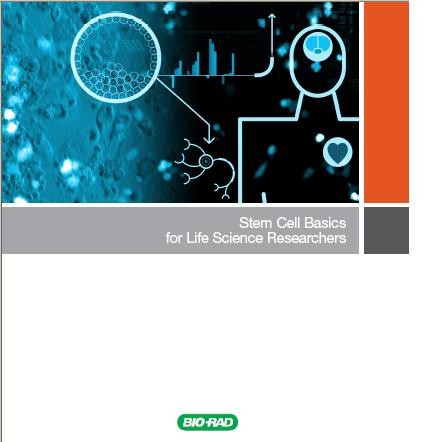Here’s a video from the archives. Watch President-Elect Obama discuss his commitment to science in November 2009. These were pre-sequestration days. Four years later, do you think that President Obama is still as committed to science?
Posts Tagged ‘sequester’
Is President Obama Still Committed to Science?
:: Posted by American Biotechnologist on 03-04-2014Road to Research Funding Recovery? Not So Fast!
:: Posted by American Biotechnologist on 01-21-2014Although 2013 was a terrible year for research funding, there is some indication that American scientists might see in increase in their spending budget this coming year. According to an Associated Press article posted in OA online 6 days ago, the government has earmarked $29.9 billion out of its $1.1 trillion 2014 spending budget for the National Institute of Health (NIH). This represents a $1 billion dollar increase above 2013 funding levels and will provide a much needed boost to the drastic drop in research funding caused by the sequester.
Yet despite its positive tone, others are cautioning that the $1 billion increase may not be enough. According to Sen. Bod Casey of Pennsylvania, the proposes 2014 budget, increase and all, still falls way short of the NIH’s 2009 funding levels. Furthermore, according to the Huffington Post, the 2014 budget is $714 million less than pre-sequestration NIH funding and smaller than all of President George W. Bush’s NIH budgets with the exception of his first year in office.
The publication Nature offered a further glimpse into how the so-called funding-boost may really be less rosy than it appears for biomedical research. According to Nature, the funding increase will provide physical science research with small increases over 2012 levels. On the other hand, biomedical research will actually experience a budget decline of approximately $800 million below 2012 funding levels. According to the Whit House Office of Management and Budget, the NIH will receive $29,926 million in 2014 compared to $30,702 in 2012 and the CDC will receive $5,807 million in 2014 compared to $5,656 in 2012. Taking into account the impact of inflation, these numbers seem particularly dismal.
What lesson needs to be learned from this story? The next time you hear that the US is on the road to recovery, be sure to check your blind spots before changing lanes. You may be surprised at the dangers that are lurking behind you.
Majority of Americans believe another government shutdown likely in coming months
:: Posted by American Biotechnologist on 12-03-2013Nearly two-thirds (65%) of Americans say it’s likely there will be another government shutdown in the months ahead as Congress continues to debate deficit and budget issues, according to a new national public opinion poll commissioned by Research!America and the American Society of Hematology. This sentiment is shared across party affiliations: Democrats (66%), Republicans (65%) and Independents (65%). There is also consensus across party lines that government dysfunction has consequences. A majority of Americans (57%) say the shutdown in October caused significant harm to many government-funded programs including medical research, defense and education. Democrats (68%) and about half of Republicans (49%) and Independents (51%) agree.
On the topic of sequestration, a plurality (44%) says Congress must tackle tax and entitlement reform to reduce the deficit instead of continuing the 10 years of across-the-board cuts; another 16% say sequestration is not the right way to reduce the deficit. Less than a quarter (23%) believe the across-the-board cuts are a way of ensuring that many government programs share the pain, and 17% say they’re not sure. In general, 62% of Americans say they’re concerned about the long-term effects of sequestration on advances in health care such as the development of new drugs and other treatments.
“Our poll demonstrates uneasiness among many Americans about the ramifications of deep spending cuts to programs that are critical to our health and well-being,” said Mary Woolley, president and CEO of Research!America. “Americans want Congress to reach a budget deal that protects medical and health research, at least in part because of concern that our nation is at risk of losing our global leadership position in science and innovation.”
The poll shows nearly three-quarters (73%) of Americans doubt the U.S. will be the number one world leader in science and technology in 2020, a significant increase from the percentage that doubted U.S. leadership last year (59%). In addition, one-third of respondents believe China will surpass the U.S. in six years. Another 30% are not sure which country will lead in science in 2020. Many believe the federal government must increase investments in medical and health research now to ensure that the U.S. can compete globally (61%), and a vast majority (84%) think it’s important for the U.S. to lead in medical, health and scientific research.
The current level of federal spending for research to combat disease leaves many Americans on edge. Upon hearing the U.S. spends about 5 cents of each health dollar on research and development to prevent, cure and treat disease and disability, nearly half (49%) say it’s not enough. Where the additional funds would come from is another question. A plurality (43%) of Americans states its willingness to pay $1 per week more in taxes if the respondents were certain that all of the money would be spent on additional medical research, with 34% not willing and another 23% uncertain about additional taxes for research.
“By cutting federal funding for research supported by the National Institutes of Health and other agencies, we are literally putting lifesaving research on hold,” said Janis Abkowitz, MD, president of the American Society of Hematology, the world’s largest association of blood specialists. “As someone who has seen firsthand how scientific breakthroughs have led to better treatments for patients with blood diseases, it is encouraging to see that voters view medical research funding as a key issue when deciding who will get their vote.”
Looking ahead to the midterm elections, about two-thirds of respondents (66%) say it’s important for candidates running for office to assign a high priority to funding medical research. More than half (53%) do not believe elected officials in Washington are paying enough attention to combating the many deadly diseases that afflict Americans.
Among other findings:
- 70% say basic scientific research that advances the frontiers of knowledge is necessary and should be supported by the federal government, even if it brings no immediate benefits.
- Upon hearing the federal government spends approximately $100 per American per year on medical research on all diseases and disabilities, about half (46%) say that’s not enough.
- 79% say it’s important that our nation supports research that focuses on improving how our health care system is functioning.
- 75% of Americans say it’s important to invest in research for job creation and economic recovery.
- 54% say the cost of health care is the single most important health issue facing the nation.
- 51% say research to improve health is part of the solution to rising health care costs.
- 75% say it’s important to conduct medical or health research to understand and eliminate health disparities.
The nationwide survey was conducted by Zogby Analytics for Research!America and the American Society of Hematology. The margin of error is +/-3.2 percentage points. To view the poll, visit: http://www.researchamerica.org/uploads/Nov13nationalpollwithASH.pdf
Thank you to Research!America for this story.
Sequestration Explained in Two Minutes
:: Posted by American Biotechnologist on 10-28-2013We’ve posted several articles about sequestration over the past few months (see 12,000 Labs to Close Due to Sequestration, Sequestration May Mean Years of Research Wasted, Sequestration Will Result in $9.5 Billion Cut to Science Funding, Obama Blasts Congress Over Sequestration’s Impact on Science, Save us from Sequestration!, Is the American Government Killing Science? and Poor Morale Continues Among Scientists Despite End to Government Shutdown.
However, one question that we never answered is:
What exactly IS Sequestration?
Thankfully, the Huffington Post attempted to give an answer before us. Below is their response.
Poor Morale Continues Among Scientists Despite End to Government Shutdown
:: Posted by American Biotechnologist on 10-21-2013After failing to enact legislation on the 2014 fiscal budget, the US government shutdown and furloughed approximately 800,000 federal workers. For seventeen nerve-racking days in October, (October 1-17), many routine government services were closed, costing the economy a whopping $24 Billion dollars. While the shutdown affected many public services and universities, it had a particularly crippling effect on one of America’s largest research institutes, the National Institute of Health. Despite the fact that the shutdown ended several days ago, many scientists continue to wonder what long-term impact the fiasco will have on their funding. Considering that the NIH supports more than 50% of American research projects, this question is completely justified.
In an article posted to the NIH website on October 17th, Sally Rockey, the NIH’s Deputy Director for Extramural Research, inforomed scientists that October grant submission deadlines will be rescheduled to November and missed reviews may or may not be rescheduled depending on the particular reviewer’s personal situation.
How do scientists feel about this setback? From the comments posted to the NIH blog, not very happy.
One PI wonders if it is even worth applying for NIH funding for the coming year. He correctly states that although the shutdown has ended, the sequester continues to loom large and hasn’t left much hope for scientists looking for grants in 2014. Even more worryingly, the commenter tells us of the impact that the shutdown/sequester has had on the next generation of American scientists which his best junior scientist moving to Malta where she has been promised more lucrative scientific funding.
Another scientists worries that:
five month delay in grant reviews may be career-ending for many scientists
Or as another scientist wrote:
Years of preparations by researchers who’s careers are dependent on these reviews will be put in peril because the agency closed for a couple of weeks
Will American science ever recover from these setbacks? How long can we sustain our position as a world leader in scientific discovery? If the responses from NIH scientists are any indication, we are entering a deep dark tunnel and it may take us years to dig out.
















